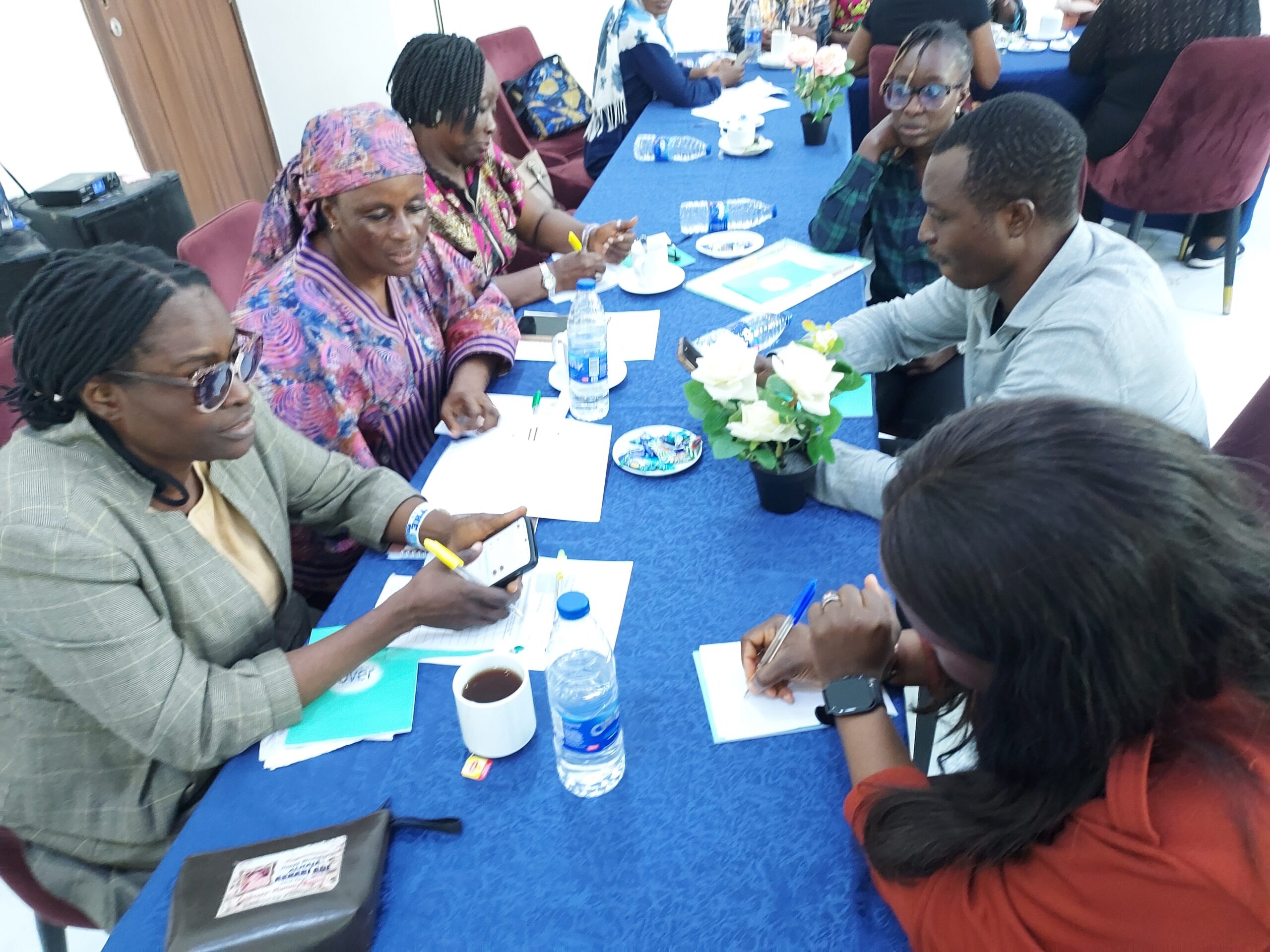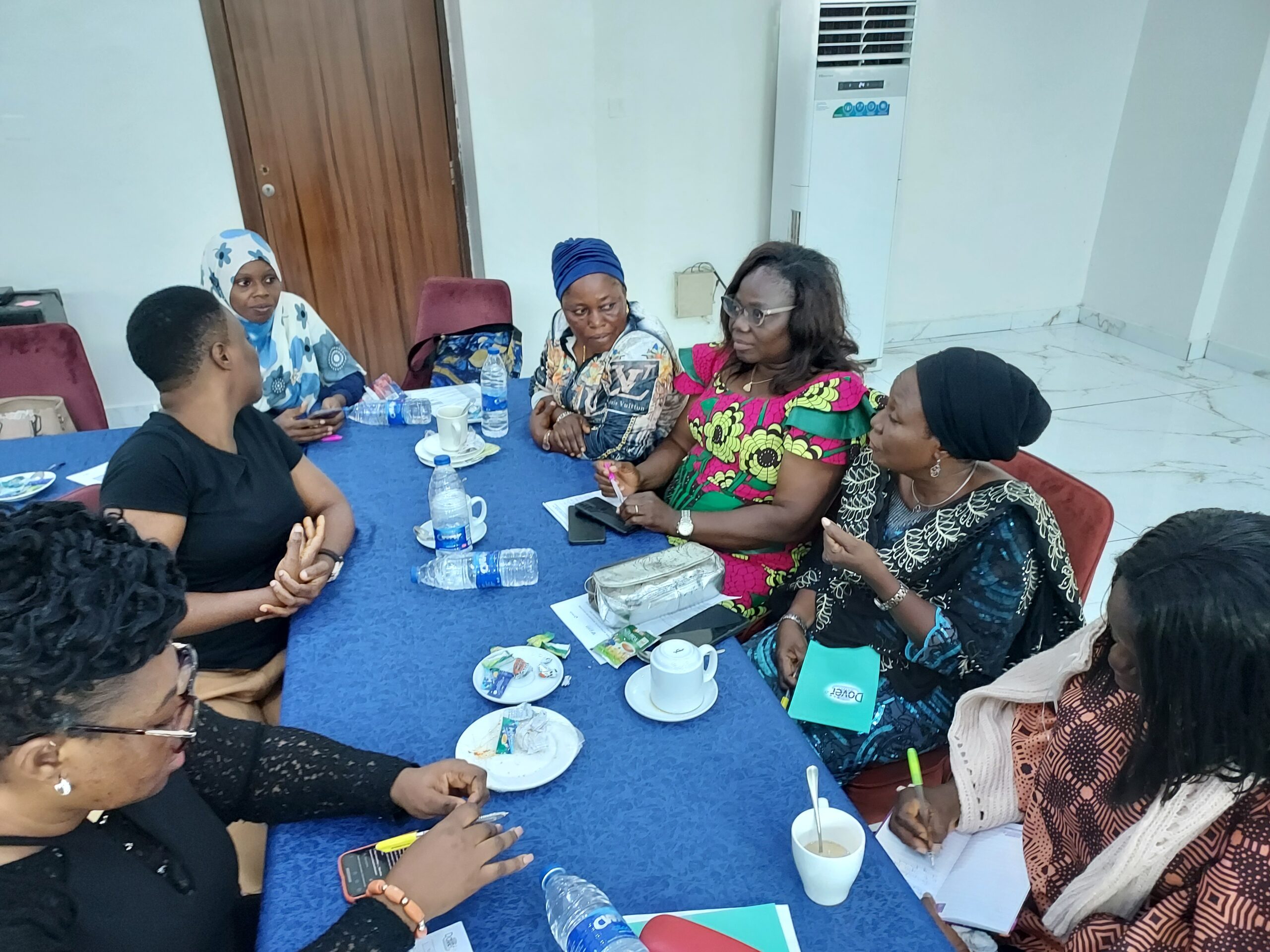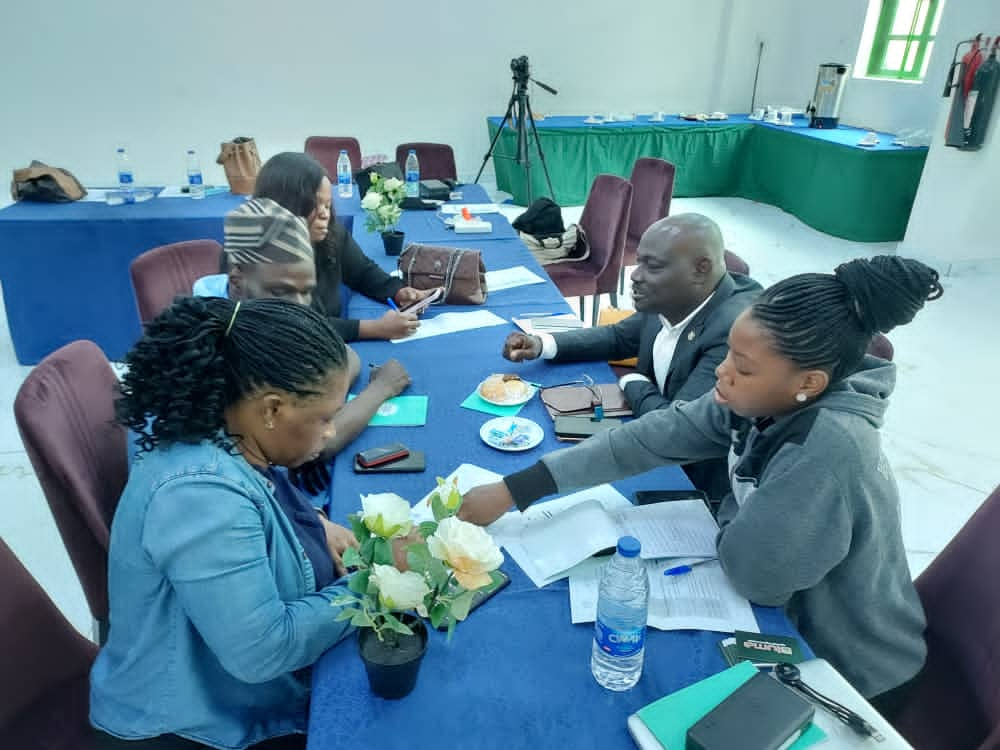By Bunmi Yekini

Despite Nigeria’s mandatory regulations requiring all edible oils to be fortified with vitamin A, a wave of unfortified and poorly branded products still dominates Nigeria markets. The Civil Society Scaling Up Nutrition in Nigeria (CS-SUNN) has raised concerns that the continued sale of such oils undermines government policy and exposes millions of Nigerians, especially children and women, to avoidable risks of vitamin A deficiency.
At a two-day regional town hall meeting, convened in partnership with eHealth Africa and supported by the Global Alliance for Improved Nutrition (GAIN), CS- SUNN brought together a group of edible oil producers, marketers, civil society leaders, and government officials to chart a course towards eliminating the quiet but deadly problem that has been simmering for years: the consumption of unbranded and unfortified edible oils.
“What we are seeing is alarming. Some of these oils are produced under unhygienic conditions, laced with chemicals for profit, and sold cheaply to unsuspecting Nigerians,” said Kunle Ishola, Senior Programme Officer with CS-SUNN and the TPAC Project Lead. “Yet, the encouraging part is that stakeholders here are ready to become advocates for change.”
The Third-Party Advocacy Campaign (TPAC) Project is being rolled out in Lagos, Abia, and Kano, three states chosen for their population size and influence in oil production. Its goal is to shift both policy and public perception towards safer, fortified food systems.
But the challenges are daunting.

Regulatory agencies like NAFDAC and SON, responsible for enforcing food safety, were conspicuously absent from the Lagos workshop, raising concerns about enforcement gaps. Balogun Idris Olanrewaju, representing the Lagos State Ministry of Agric and Food System did not hide his reservation: “We cannot talk about phasing out unbranded oils without NAFDAC at the table. Branding ensures traceability. Without it, we cannot know where these oils come from or how they were made.”
Behind the Oil: Tales from the Market
Beyond the policy rooms, the reality on the ground is troubling. A wholesale oil seller with over 20 years of experience, who requested anonymity for safety, admitted she has watched chemicals being added to palm oil in neighbouring states to make it appear clearer for resale. “I even cook with the same oil,” she said, without concern for the potential risks.
But experts warn that such practices have long-term consequences. Dominic Gulak, Project Manager at eHealth Africa, noted: “People may not fall sick immediately, but over time these harmful additives and lack of fortification accumulate, leading to heart problems, foodborne diseases, and micronutrient deficiencies.”
The absence of fortification is particularly worrisome in a country where dietary diversity is low. “Years ago, goitre was rampant until iodine was added to salt. That simple step changed everything. Today, fortifying oils with Vitamin A can save us from another silent crisis,” Ishola emphasised.
Producers Respond: Between Compliance and Confusion
Not all producers are turning a blind eye. Some have embraced fortification, albeit reluctantly at times.
Funmilayo Ishola of Cruse Oil explained that her company repackages vegetable oils that are already fortified with Vitamin A. “It’s a chemicalized process, yes, but NAFDAC insists on fortification and we comply. Oils now come in properly labelled packs instead of just tankers.”

For others, the policy environment is murkier. Owoeye Alexandrina, CEO of Laderin Nig. Ltd, whose company produces cold-pressed coconut oil, expressed frustration: “Internationally, coconut oil doesn’t require fortification, it’s naturally healthy. But in Nigeria, one set of officials told us not to fortify, then another insisted we must. So we now add natural Vitamin E just to comply.”
Meanwhile, small-scale processors like Ndidiamaka Oluwaseyi of Olumo AgroHub described rudimentary production chains where palm oil is mashed, boiled, and shipped in kegs from Akwa Ibom to the west, processes that may often escape regulatory oversight.
The Bigger Picture: Nutrition and the Law
Nigeria has had a mandatory food fortification policy since 2002, requiring salt, sugar, flour, margarine, and edible oils to be fortified with essential micronutrients. Under NAFDAC rules, all vegetable oils must contain at least 20,000 International Units of Vitamin A per kilogram. Labels must also carry the NAFDAC number, expiry date, and fortification logo to guarantee compliance.
Yet, compliance remains weak. A recent GAIN assessment revealed that while vegetable oil consumption in Nigeria is as high as 90.3%, only 31.4% of oils meet fortification standards.
Adetola Otunla, Program Officer at GAIN, stressed why the stakes are so high: “Large-scale food fortification is one of the most cost-effective health interventions. Every $1 invested generates $27 in economic returns through improved health and productivity. For Nigeria, ensuring fortified oils are accessible and affordable is not just a health need, it’s an economic imperative.”
Towards Safer Kitchens
Despite the gaps, optimism remains. Stakeholders at the Lagos workshop agreed that phasing out unbranded oils will require stronger enforcement, consumer awareness, and collective accountability.
“We cannot enforce compliance as civil society, but we can demand it. Nigerians deserve to know what is in their food and to trust that it will nourish, not harm them,” Ishola concluded.
As the workshop closed, participants broke into groups to brainstorm strategies for enforcement and awareness campaigns. Yet the unresolved question lingered: without consistent regulatory presence and enforcement, can Nigeria truly phase out unbranded oils?
For now, the unbranded oils continue to flow through markets in plastic jerricans and drums, their true contents hidden. But with stronger partnerships between government, industry, and civil society, CS-SUNN believes Nigeria can turn its fortification policy into a success story that not only improves health outcomes but also strengthens consumer confidence in the food system.
